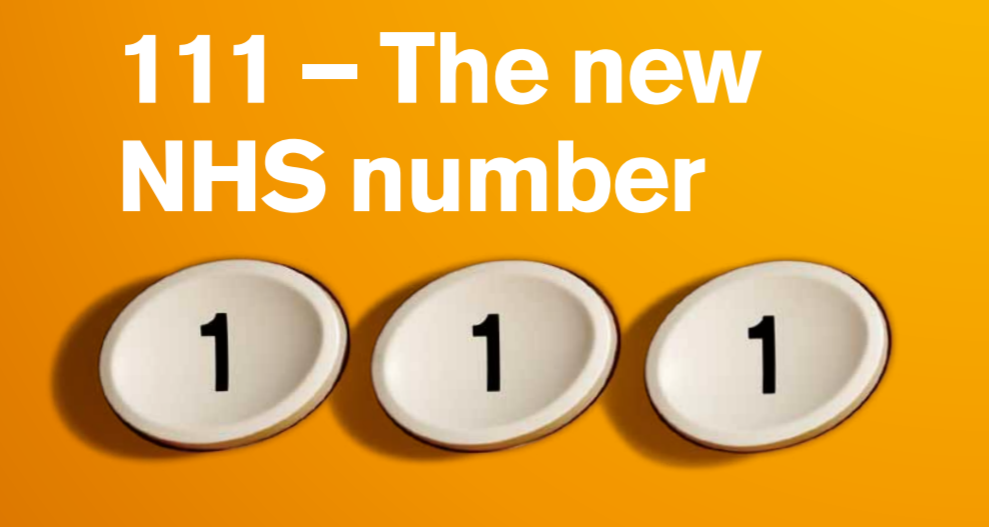NHS 111 calls 'to be handled by robots within two years'
An AI algorithm could reduce the burden on the health service, leaked report says

One-third of all patient enquiries to the NHS 111 service will be handled online by AI come 2020, according to a leaked report.
An internal evaluation, leaked to The Telegraph, suggests that almost 16 million patient inquiries could be handled by AI within two years, at which point NHS smartphone apps will become the "primary method of accessing health services", rather than a telephone.
The draft report comes amid calls to come up with ways to alleviate mounting pressures on an increasingly overburdened health service.
Last month was the NHS's busiest call period since call data collection began in 2010, with over 1.6 million calls to the NHS 111 service, roughly 54,000 per day, according to official figures. Of those calls, the proportion of patients abandoning their calls after 30 minutes was 7.2%, almost double that of December 2016.
The system has also been marred by a series of scandals that have raised questions over its efficacy, including the death of an infant after signs of a serious illness were missed, and criticisms that many call handlers lacked medical training.
The UK government has also previously warned that NHS needs to make better use of AI and analytics on patient data if it's to compete against private medical companies. Think tank Reform made similar recommendations last week, saying the NHS should also concentrate on the quality of patient data it can feed into AI apps that could benefit the public.
Since then, the leaked internal proposals reportedly urge that an online service is developed using an algorithm to handle a quarter of NHS 111 enquiries by next year (around 16 million cases) rising to a third by 2020.
Get the ITPro daily newsletter
Sign up today and you will receive a free copy of our Future Focus 2025 report - the leading guidance on AI, cybersecurity and other IT challenges as per 700+ senior executives
The new service would allow patients to check symptoms online and read tailored advice generated by an algorithm, with the option of referring their case for a call from an out-of-hours GP.
An NHS England spokesperson told IT Pro via email: "NHS 111 Online offers an additional route for urgent medical advice as an extra option - alongside telephone advice or a face-to-face consultation. If it frees up time for staff to spend with those patients who do prefer a direct conversation, that should be a win-win."
However, patient groups have previously expressed concerns about attempts to digitise NHS services, saying those without access to computers or smartphones would be left out.
Joyce Robins, director of Patient Concern, said that the proposals make "very unfortunate assumptions" about the availability of online devices, particularly when involving elderly patients.
"It's also wrong to assume that people want to deal with their health in such a depersonalised way and I would be very fearful of the kind of mistakes that could be made, when you are relying on people who are poorly and often confused to work their way through computer questionnaires," said Robins, speaking to The Telegraph.
However, the report, which covered research on NHS pilot schemes providing online services to 7.5 million patients, revealed that younger people were far more likely to use the service than older patients. In some regions, over three-quarters of those accessing online services were under 35.
NHS 111 Online currently exists as four pilot services in the UK, but the leaked report suggests the AI service will be launched across England by the end of 2018.
Picture: NHS
Dale Walker is a contributor specializing in cybersecurity, data protection, and IT regulations. He was the former managing editor at ITPro, as well as its sibling sites CloudPro and ChannelPro. He spent a number of years reporting for ITPro from numerous domestic and international events, including IBM, Red Hat, Google, and has been a regular reporter for Microsoft's various yearly showcases, including Ignite.
-
 Should AI PCs be part of your next hardware refresh?
Should AI PCs be part of your next hardware refresh?AI PCs are fast becoming a business staple and a surefire way to future-proof your business
By Bobby Hellard
-
 Westcon-Comstor and Vectra AI launch brace of new channel initiatives
Westcon-Comstor and Vectra AI launch brace of new channel initiativesNews Westcon-Comstor and Vectra AI have announced the launch of two new channel growth initiatives focused on the managed security service provider (MSSP) space and AWS Marketplace.
By Daniel Todd